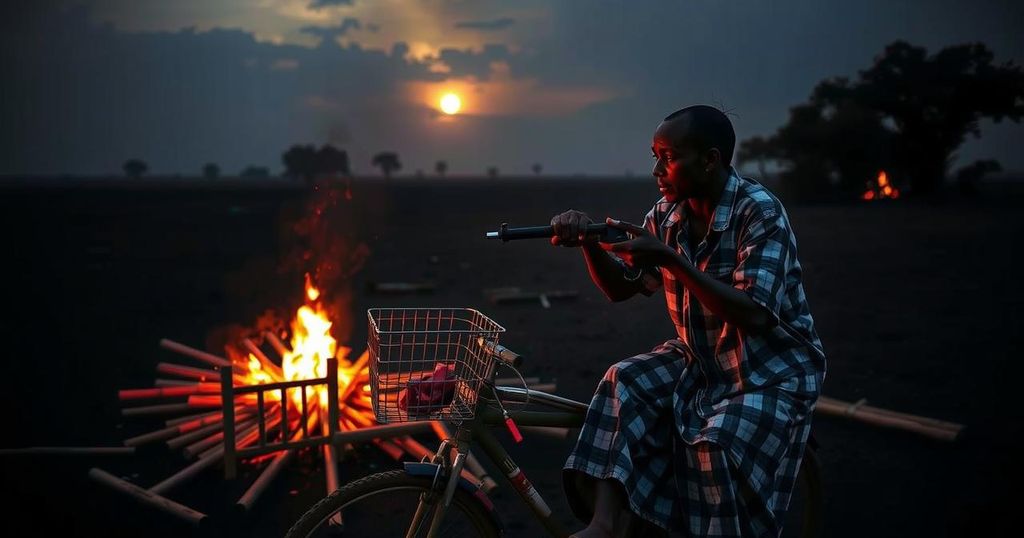UN Highlights Challenges in Abyei Due to Sudan Conflict and South Sudan Instability

The ongoing conflict in Sudan and political instability in South Sudan has stalled crucial dialogues regarding the final status of Abyei, as reported by the UN’s Assistant Secretary-General Martha Ama Akyaa Pobee. Humanitarian crises have intensified with thousands fleeing violence, while insecurity disrupts local economies and exacerbates community tensions. UNISFA is tasked with stabilizing the area but faces operational constraints amid increased needs for support and law enforcement in Abyei.
On Wednesday, a senior United Nations official alerted the Security Council that ongoing warfare in Sudan and the political instability in South Sudan are hindering essential political dialogues regarding the final status of Abyei and related border issues. Martha Ama Akyaa Pobee, the Assistant Secretary-General for Africa, emphasized the detrimental impact of the Sudan conflict on both nations, calling for enhanced support for the United Nations Interim Security Force for Abyei (UNISFA) as its mandate approaches expiration on November 14. During her briefing, Ms. Pobee indicated that the war has severely affected security and humanitarian conditions, with notable repercussions in Abyei. She reported a disruption in oil production and exports due to these security challenges in South Sudan, exacerbating its economic difficulties. Furthermore, the current humanitarian crisis has seen hundreds of thousands of refugees fleeing Sudan into South Sudan, where they share the harsh realities facing local citizens, including limited access to food, clean water, and healthcare. The proliferation of small arms within the Abyei region has raised concerns, highlighted by an incursion of Rapid Support Forces reportedly looting areas within South Sudan. This exacerbates existing tensions between local communities, particularly the Twic Mayardit and Ngok Dinka. Climate change has compounded these issues, as significant flooding has displaced thousands and adversely impacted essential services and agricultural output. As the conflict between the Sudanese Armed Forces and the Rapid Support Forces continues, now entering its nineteenth month, the UN official underscored that stability remains elusive in the Horn of Africa and the Sahel. She stressed that the effective implementation of resolution 2046 (2012) is contingent upon resolving the underlying conflict in Sudan. Ms. Pobee noted that UNISFA continues to monitor the situation closely, focusing on stabilizing Abyei and fostering reconciliation among local communities, with no reported clashes between Ngok Dinka and Misseriya tribes. However, she raised concerns about the presence of South Sudanese security personnel in Abyei—a contradiction of previous agreements—which poses restrictions on the operations of UNISFA. She urged for collaborative efforts with South Sudanese authorities to facilitate a timely reactivation of the Joint Political and Security Mechanism. Lastly, the influx of displaced individuals fleeing Sudan has strained local resources, leading to increased criminal activity. The UN calls for support to enhance the capacity of UNISFA in maintaining law and order in Abyei, ensuring a secure environment for all residents amid rising needs.
The ongoing conflict in Sudan has reached a critical point, significantly affecting both Sudan and South Sudan. The instability is particularly pronounced in the Abyei region, a disputed area rich in resources and a point of contention between the two countries. The UN has been actively involved in mediating discussions regarding Abyei’s status, yet political dialogues have stalled due to the challenges posed by warfare and insecurity. UNISFA plays a pivotal role in monitoring and ensuring stability, but it faces operational constraints amid escalating humanitarian needs, particularly as refugee movements increase from Sudan into South Sudan. The combination of armed conflict, climatic challenges, and humanitarian crises demands urgent attention and comprehensive support from international entities to facilitate a resolution.
In conclusion, the interplay of the war in Sudan and political uncertainty in South Sudan greatly hampers dialogue regarding Abyei’s final status. The vulnerabilities and humanitarian crises are compounded by armed conflicts and environmental challenges. The situation necessitates increased international support for UNISFA and a coordinated response to alleviate the strife affecting displaced populations and local communities alike. Only through cooperative efforts and improved security conditions can progress towards peace be achieved in the region.
Original Source: www.radiotamazuj.org








